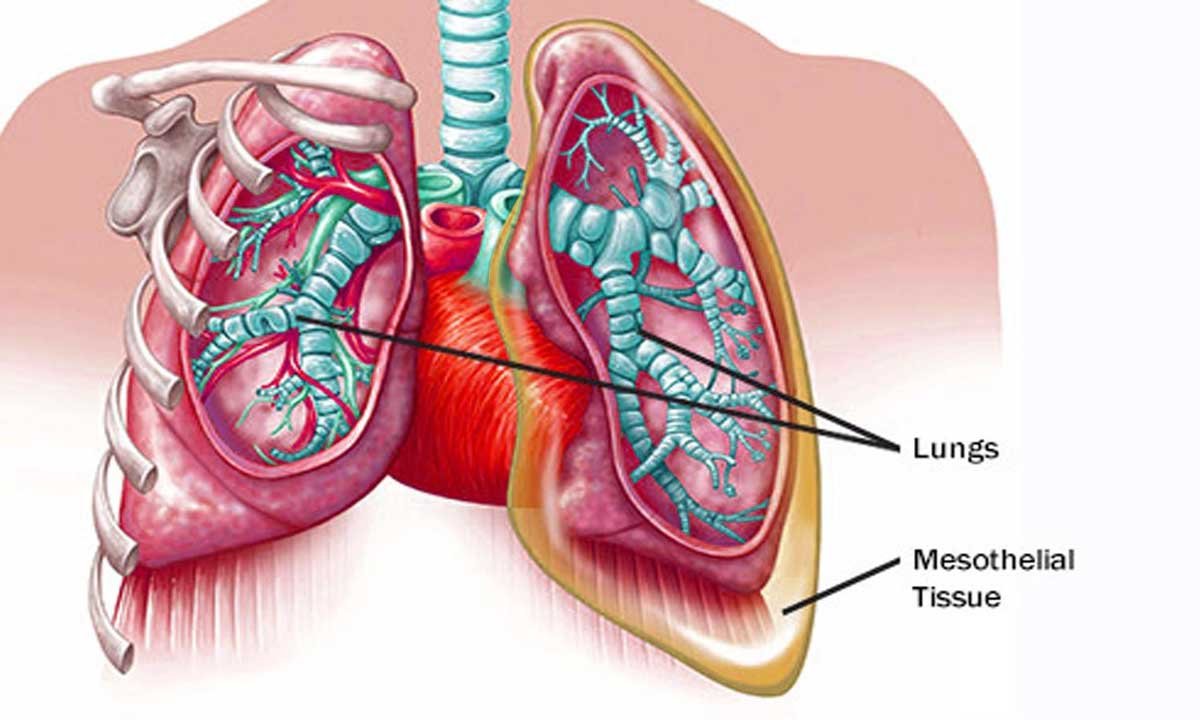A mesothelioma is a form of cancer, and It affects the thin layer of tissue surrounding your vital organs. A predominant cause of mesothelioma is asbestos exposure. Asbestos is a type of heat-resistant mineral used in insulation, tiling, roofing, and care brakes.
In the form of fibers, these minerals are woven into these products. You risk exposure when you engage with a product containing asbestos. In most cases, exposure is not intentional but a result of a renovation project.
Anytime you decide to scrape, remove or drill asbestos products, you can inhale them. Unfortunately, since these strands are airborne, you have a high risk of getting cancer. Mesothelioma is a dangerous form of cancer.
Even if you seek immediate treatment, the window of surviving this disease is minimal. It will cost you substantial money for treatment. So, if you wish to learn more about this cancer, you’ve come to the right place. Here’s everything you need to know about this cancer:

Table of Contents
1. What Causes Mesothelioma?
The most common cause of mesothelioma is asbestos. Asbestos exposure doesn’t give you mesothelioma right away, and it takes years for cancer to take root. By the time a doctor catches that you have mesothelioma, sometimes, it’s already too late. Unfortunately, the mesothelioma survival rate is not the same in its different stages. In some cases, patients also pass within a year.
However, there are also other causes of mesothelioma. These are less common than asbestos exposure, yet still possible. They are as follows:
- These are minerals just like asbestos. Zeolites have many types, but the mineral erionite is seen to be a cancer-causing agent. Exposure to high amounts of erionite is another possible cause of it.
- Radiation. Some cases of mesothelioma may have developed due to exposure to high doses of radiation. These could be due to exposure to radioactive material or radioactive apparatus. Such as prolonged exposure to X-rays.
2. Symptoms of Mesothelioma
Mesothelioma starts expressing itself on your body after 20 to 50 years of exposure. Cancer takes its time to spread itself around the body. The main symptoms of mesothelioma significantly if it impacts the lungs are shortness of breath and chest pain. Your lungs may also start getting pooled with fluids that come from a thin membrane present around the lungs.
If the mesothelioma spreads to your abdominal cavity, you will experience:
- Shortness of breath
- Weight Loss
- Chest pain
- Cough
- Fever
3. What is the Prognosis for Mesothelioma?
When a doctor is studying your case, they need to take certain factors into account. These factors will inform them how bad your medical condition is and what your possible treatment options are:
- The Cancer Stage. A doctor needs to know how big the tumor is and how far it has spread. It is where doctors assign it a stage number to give you an idea of how bad it is. Generally, cancers that are in the fourth stage are the most advanced versions and challenging to treat. Doctors also need to know how far cancer has spread from its original site.
- The Size Of Mesothelioma. Tumors can grow to a considerable size, making them a major risk. It also tells a doctor how quickly they need to operate.
- Condition of Your Body. Doctors need to examine further whether there is fluid in your chest or abdomen and how much it is present.
- Your General Health. A doctor needs to know your age and if you’re in any position to get surgery. If you happen to be an older person with multiple diseases such as diabetes and cancer, they need to exercise caution. If your health is weak, this complicates the case, and only a doctor can make the final decision for you.
- The Type of Cells. Asbestos exposure causes the mesothelioma cells to grow in different sizes, and where on your body are they growing.
- Cancer History. A doctor needs to know if this is your first cancer treatment or a relapse. It changes the course of your treatment.
4. Treatments for Mesothelioma
Your prognosis plays a major part in your treatment. Doctors use three types of treatments which are surgery, radiation, and chemotherapy. Doctors can use a series of two treatments of three. They are as follows:
- Surgery has many types, depending on your condition and what your doctor decides is the best course for you. An example of a surgical procedure is wide local excision. During this procedure, cancer and some of the healthy tissue are removed.
- Radiation Therapy. This cancer treatment uses high-energy X-rays. These radiations are targeted and kill cancer cells right away.
- It uses drugs to stop the growth of cancer cells. Chemotherapy is administered either by mouth or injection. Doctors can use more than one chemotherapy medication to help you combat cancer.
Wrap Up
Cancer is painful as it is. However, mesothelioma, an uncommon and aggressive form of cancer, is even more painful to have. Exposure to asbestos-containing material can give you cancer along with other factors that can contribute to mesothelioma. Symptoms of your cancer depend on where it spread and how far it is from the original site. A doctor will then conduct a thorough exam to deduce your case and how fatal it is. When a doctor has the complete picture of your disease, then treatment starts. Finally, your doctor will start treatment in hopes they can contain cancer.





